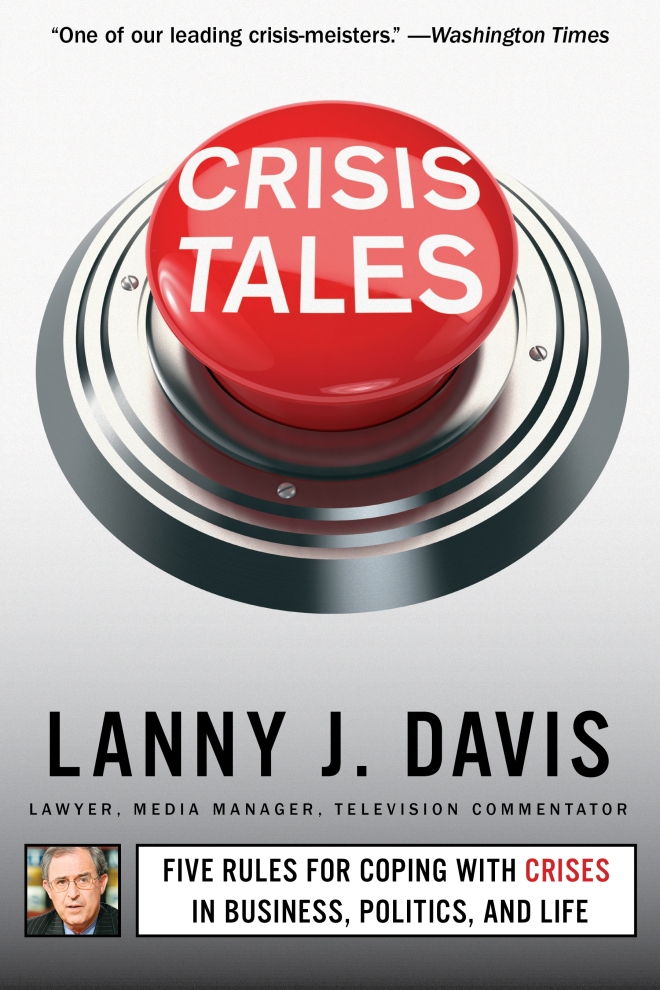“Tell it all, tell it early, tell it yourself.” These are Lanny Davis’s guidelines for crisis communications.
Hillary Clinton has violated all of them. And that’s why the email albatross is still screeching around her neck, making the majority of Americans feel she’s not truthful. Clinton’s email mess and her increasing obfuscation and dodging is the quintessential example of a crisis so poorly handled that it is never allowed to die. She shot herself in the left foot by setting up a private email system, and she continues to shoot off toe after toe on her own right foot with increasingly obtuse loads of bullshit which are crippling her campaign and destroying her credibility.
Lanny Davis helped Bill Clinton through Monica and impeachment, is a partner in a crisis communications firm, and has written a pretty darn good book about handling crises, Crisis Tales. Hillary has been acting for months not only as if she’s never met Davis, but as if she’s never heard the most basic advice a junior account executive in PR would give someone in a crisis — “get the thing over with, get everything out, deal with it and don’t let it drag on.”
Another crisis comm bromide: It you’re explaining, you’re losing. Clinton is still explaining, to Fox News, to the associations of Black and Hispanic Journalists, to anybody who can still stand to listen. Which is almost nobody.
And the final rule in handling crises — have somebody with a finely tuned bullshit detector on your team who will speak truth to power. Somebody needed to sit Clinton down and tell her last week — “No, Hillary, FBI director Comey did NOT say your FBI testimony was consistent with all your public statements. No, Hillary, you did NOT short-circuit your answer with Chris Wallace on Fox, you were NOT talking past each other. What you are saying, Hillary, is NOT TRUE. And people will know it, and they’ll recognize that you’re still spinning and dodging and dancing and they’ll rightly conclude you’re not trustworthy.” Tough stuff to say, but that’s what a smart person needs around her, someone who will tell her the truth. Has anyone? Does she not listen?
As hundreds of observers have said, this whole mess could have been dealt with honestly and openly when the email issue first surfaced and it would have caused much less harm than this dragged-out water torture has.
But what should Hillary do now? I watched Joe Scarborough struggle with this on Morning Joe today, trying to role play what Hillary might say now. It’s not easy. Scarborough stumbled through some straight talk and some obfuscation, went too far, said too much, and ended up promising a Clinton term would be the most ethical in history.
If I were advising Clinton, I’d have her say something like this: “I haven’t been as forthcoming and clear as I need to be about this email mistake I made, and I want to correct that. Having a private server was a mistake in judgment pure and simple, and I’m sorry for it. And how I’ve handled questions about it has caused many people to doubt my honesty, and I regret that. I ask people to judge my character and capability based on my whole record of public service, where my constituents and colleagues have trusted me.”
Something like this could help, even now. What she says has to be short, simple, and has to address head on the elephant in the room — people don’t trust Hillary.
By not stepping up and openly taking the hit, Clinton has caused herself months and months of debilitating atrophy of her reputation and — has increased the possibility that a crude, immature, ignorant huckster might become president. We’re all paying the price for Hillary Clinton’s refusal to deal honestly and forthrightly with a crisis.
— Bruce Benidt
 I’ve spent the morning playing with
I’ve spent the morning playing with